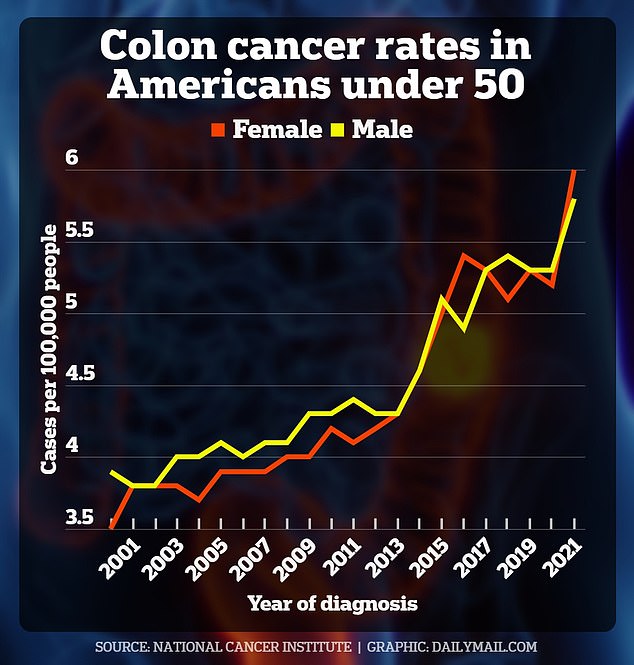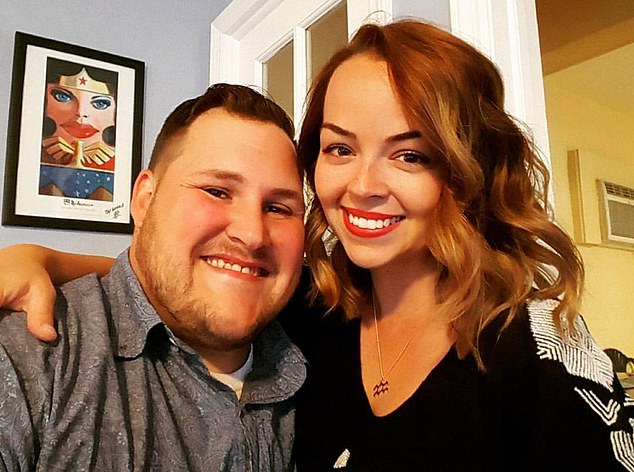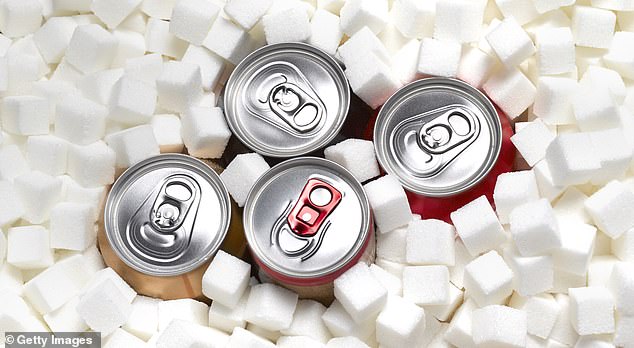For many Americans, cracking open a soda is a small daily indulgence — a fizzy treat paired with an otherwise balanced lifestyle.
But a new study suggests that even this seemingly innocent habit could be turbocharging one of the deadliest forms of cancer striking young people today.
Researchers have found a link between consuming at least one sugary soda or candy every single day and late-stage colon cancer, the hardest-to-treat form of the illness.
Nearly half of young adults, defined as under 50, with stage four cancer consumed at least one super sugary treat per day compared with fewer than 30 percent of patients with stage one to three colon cancers.
They found no association between colon cancer and consumption of red meat, processed foods, fruit, vegetables, fish, poultry or dairy. It suggests a troubling link to sugar specifically.
Dr Emma Schatoff, a medical oncologist from Memorial Sloan Kettering Cancer Center who led the study, told the Daily Mail: ‘Young people were coming in with metastatic disease, or cancer that had spread everywhere — it was in their liver, lungs, other organs – and they were very surprised.
‘We looked at anything that could have raised their risk level. We looked at inflammatory bowel disease and medication use, but found no difference there.
‘Then we looked at diet, and found no link with processed foods or red meat. But we did find a link with high sugar foods in stage four patients diagnosed with the disease for the first time.’


Heather Candrilli (left) was diagnosed with stage 4 colon cancer last spring at 36 years old
She added: ‘We defined a high sugar diet as daily consumption of high sugar foods, such as a [single] soda or a candy.’
It is thought that sugar can cause damaging changes to the gut microbiome, which can lead to mutations in cells that result in tumors forming.
An estimated 63 percent of Americans aged 18 or older report consuming at least one soda a day, according to the CDC.
The study included 303 colon cancer patients under 50 years old, of which 112 had stage four disease and 191 had stages one to three disease.
Each filled in a dietary questionnaire to allow researchers to analyze their consumption and detect any possible links between their diets and disease.
Patients were asked: ‘Two to five years before diagnosis, how often did you have one serving of high sugar foods (eg soft drinks, candy).’
Overall, 45 percent of stage 4 patients reported daily consumption of high sugar foods.
By comparison the share was 29 percent in the group with less advanced cancers.

Consuming high sugar drinks could raise your risk of being diagnosed with advanced colon cancer, a study suggests
The study concludes: ‘In a single center study, in early-onset colon cancer patients, high sugar diets may be associated with de novo [new] metastatic disease.’
It was presented at the American Society of Clinical Oncology’s annual conference in Chicago, Illinois, the biggest gathering of cancer researchers in the world, which is attended by 40,000 people.
The results have been published as an abstract, and not yet in a scientific journal where they will be reviewed by other scientists.
Scientists say that regularly consuming sodas can cause sugar to build-up in the colon when it cannot be fully absorbed, changing the gut microbiome and potentially boosting levels of inflammation.
They also say sugar can be used as fuel for tumor cells which may cause the cancer to grow faster.
A study published last year found that diets low in fiber and high in sugar spark the proliferation of a bacteria called Fusobacterium in the gut.
This causes widespread inflammation in the gut, which has been shown to age cells, making them more vulnerable to cancer-causing mutations.

Bailey Hutchins of Tennessee, pictured, died of colon cancer at just 26 years old
In the new study 51 percent of patients were female. All had no previous cancer diagnosis and were under 50 years old.
Individuals diagnosed with stage four were younger, at an average age of 41 years, compared to 43 years in the other group.
Colorectal cancer is the fourth most common cancer in the US and the second-leading cause of cancer deaths.
The American Cancer Society estimates that 154,270 Americans will be diagnosed with colon cancer this year and 52,900 will die.
In the UK 44,063 cases are diagnosed per year and the nation experiences 16,808 deaths every year.
Since the 1990s early-onset colon cancer has increased by 50 percent and rates are expected to double between 2010 and 2030.












